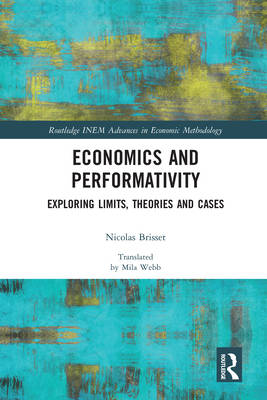
- Afhalen na 1 uur in een winkel met voorraad
- Gratis thuislevering in België vanaf € 30
- Ruim aanbod met 7 miljoen producten
- Afhalen na 1 uur in een winkel met voorraad
- Gratis thuislevering in België vanaf € 30
- Ruim aanbod met 7 miljoen producten
Omschrijving
Economists do more than merely describe an external economic world. They shape it in the image of their theories and models. This idea, following the philosophy of language, puts forward that economic theories are performative, and not only descriptive.
This idea has become a powerful critique of the scientificity of economics since it removes the idea of an external world against which our description could be evaluated as truth. If any theory can become true, there are no true theories per se because there is no such thing as a pre-existing economy to describe. Is such a relativist stance a fatality? This is the question at stake in this book. Furthermore, the author asks if any theory is able to 'perform' the social reality, or are there actually some limits to performativity? For philosophers, a performative statement is a statement that cannot fail to mean something, but can fail to do what it calls for. The state of the world may or may not be changed; the performative statement may be happy or unhappy. In economic terms, this can be interpreted as: some theories change the world while some do not. This book argues that this possibility of failure, a perspective previously missing from discussions on the subject, should be at the heart of any definition of failure.
Taking on the question of why some theories change the world while others do not, this volume will be of interest to those studying advances courses on the philosophy of economics as well as those studying and researching in the areas of the philosophy of sciences and sociology of science and economics.
Specificaties
Betrokkenen
- Auteur(s):
- Uitgeverij:
Inhoud
- Aantal bladzijden:
- 300
- Taal:
- Engels
- Reeks:
Eigenschappen
- Productcode (EAN):
- 9780367588199
- Verschijningsdatum:
- 30/06/2020
- Uitvoering:
- Paperback
- Formaat:
- Trade paperback (VS)
- Afmetingen:
- 156 mm x 233 mm
- Gewicht:
- 739 g

Alleen bij Standaard Boekhandel
Beoordelingen
We publiceren alleen reviews die voldoen aan de voorwaarden voor reviews. Bekijk onze voorwaarden voor reviews.











